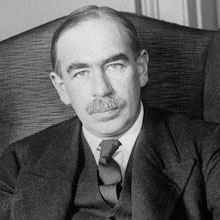By MoneyMorning.com.au
It’s a rough number, but it’s thought there’s about 1.3 trillion barrels of known oil reserves in the world.
It might sound large, but it’s not.
When you consider that worldwide oil consumption is about 88 million barrels a day, that ‘supply’ would only last another 42 years.
The BP Statistical Review of World Energy (June 2011), estimated the world uses oil for 33.6% of its energy needs.
So finding more oil is essential.
But, it’s getting harder to find. And so, exploration is taking place in spots no one would have ever considered before.
It means that as the oil price stays high – it’s just under USD$120 per barrel – oil fields that were uneconomical to drill have become, well… economical.
Brent Crude – Oil just below USD$120 per barrel
Source: stockcharts.com
It also means that hard to access terrain… and even politically unstable countries are looking less and less like trouble… and more like investment opportunities.
The great news is, you can cash-in on these opportunities. But only if you back the right type of company. You see, you won’t find the big, well-known companies risking their capital in unstable places.
Not to begin with. It’s the small companies that get in first… the ones looking to stake a claim on a potentially huge resource…
Small-cap listed stocks.
Unfortunately, many investors miss out. Because they invest in the “safe” big oil producers (Westside, BHP, Santos, etc.).
But the big companies only come along later. Once the resource is proven.
By then, most of the big gains have been made. So, if you’re after the big return, you need to get in early. When a stock is at its riskiest point…
Worthless Permits Lead to Significant Oil Discovery
Back in 2005 Tullow Oil Plc. [LON: TLW] was a little known oil exploration company. The stock traded for around 160.00p, and the company had a market cap of less than £600 million. While it’s not a tiny, small-cap company, the risk for this company was still high.
Why? They held what some might call ‘worthless’ exploration permits in East Africa.
For the better part of last decade, it was thought East Africa only had 6 billion barrels of oil. Given the unstable political nature of countries like, Somalia, Kenya, Mozambique and Ethiopia, no one bothered to search for more.
After all, why would you waste your time? West Africa had more than 60 billion barrels of recoverable oil. And the northern part of Africa is estimated to hold nearly double that.
But with belief that something was there, Tullow went ahead with a test well in the landlocked East African country of Uganda.
Drilling in 2006 in Uganda proved to be successful. And a couple of years later, the company confirmed a 2 billion barrel resource… scheduled to produce its first barrel by 2014.
How did this affect the share price? The stock jumped from 160.00p in 2005 to 656.00p in 2007… giving investors a nice 310% gain in that time.
Tullow Oil Plc. – Up 310% in two years
Source: Google Finance
However, the company’s new found confidence in the region, encouraged more exploration.
Persisting with the idea that East Africa might hold more oil than previously thought, Tullow Oil, kept drilling.
And last March the company announced a significant find. This time in Kenya! The company is still yet to determine the size of the oil reserve, but believe it’s promising.
Confident they’re on the right track, they’ve cast the exploration net wider.
Such as an exploration permit in the rift basin in Ethiopia. The rift basin is showing almost identical geological formation as the one in Kenya. Meaning, the company is confident it will find another sizeable oil deposit.
The thing is, Tullow Oil is looking for oil in places other companies weren’t willing to look.
You see, a billion dollar company may decide the cost of exploration is simply too great. Perhaps a country or region is just too risky for a large company. Maybe, they think the area is worthless… unlikely to produce anything of value.
Yet for small companies, exploring in untapped areas is worth the risk. Tullow persisted with their ‘worthless’ exploration permits.
And it paid off.
Today the stock trades for around 1,535.32p. Those ‘worthless’ permits have seen the share value rise 859% since 2005.And now Tullow Oil has a market capitalisation of £13 billion. A big increase from seven years ago.
However, this story isn’t unique. If you scour the ASX, you’ll find many tiny exploration companies with permits in regions large oil companies wouldn’t touch.
But don’t be fooled, not all of them will put in a Tullow Oil style performance. Only a few will get lucky and find what they’re looking for.
How do you know where to find them?
Kris Sayce says he has the answer. Check out his latest presentation. He shares his tips on what he looks for when searching for a small cap stock. And even lists his top five picks for 2012 – including energy companies that are looking for oil and gas in untapped locations.
Shae Smith
Editor, Money Weekend
The Most Important Story This Week…
It’s hard to believe that there was time in both the United States and Australia when income tax did not exist. Both countries in their early development had small, modest governments. But that was destined not to last. Growth of government is usually a one-way street. They get bigger… More controlling. And always more expensive. Taxes follow in the same upward direction. Always more. The thing to remember is that taxes are a violation of individual liberty. The government uses force to take private property.
But taxes also distort the economy. The government brings into existence and supports industries at the expense of others… Price signals are confused…The wrong types of investments are made. All this comes at great cost to taxpayers, as individuals have to work harder and longer because government consumes more of their income. But it goes further. Taxes also have a harmful effect on society as a whole. This will come as a surprise for some. We are often lectured on how “taxes are the price we pay for civilisation”. Yet as Kris Sayce explains, the opposite is true. You can read the full details in How Taxes Destroy Society, Rather Than Enhance It.
Other Recent Highlights…
Greg Canavan on Two Things You Need To Ride The Gold Bull Market: “With government bond yields rising again, bank balance sheets are even weaker than they were at the end of 2011. Once again, the clowns running the financial system have just made things worse. Whether this is the start of the big sell-off I’ve been predicting is impossible to tell at this stage. But it sure feels like it.”
Kris Sayce on Why Natural Gas Is Still My Favourite Resource Opportunity: “The old investment saying is, “buy low and sell high”. If you do that with every investment you make, you won’t go far wrong. But what if the investment you like, keeps getting cheaper? In fact, what if the price had nearly halved since the start of the year? We’d say that makes it even more of a buy.”
Jeffrey Tucker on Why Walmart is the Real Victim of the $24 Million Pay-off in Mexico: “The breathless and bloviating Times expose is written as if these intrepid reporters were exposing a violent mob engaging in killings to get its way. You never quite get that Wal-Mart would much rather have used the money to expand its business, hire more employees or beef up its inventory. Money used for bribes is a loss to any company, a terrible price of doing business under the state.”
Shae Smith on Westfield – The Aussie Retail Stock That Could Make You Money: “You see, while it seems like you’d have to be mad to invest in Aussie retailers right now, the retail sector is turning a corner. Not here. But overseas. And surprisingly, it’s a rebound in US retailing that could boost your portfolio.”
Dr. Kent Moors on The Israeli Natural Gas Connection: “Most attention in the Middle East is now transfixed on the ongoing crisis in Syria, the renewed uncertainty after the Egyptian elections, and the developing standoff between Iran and the West. However, something else is happening offshore that may be a positive game changer. Natural gas development, and apparently a lot of it. This interest converges in two unlikely places…”

How $120 Oil Can Boost Your Small-Cap Returns






